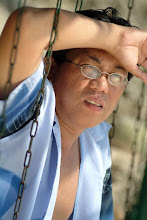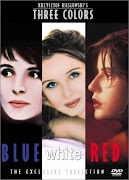Call of the cool
When adults whom we look up to as leaders loom outsized with their public antics and their acrimonious statements, don’t you miss Kids Say The Darndest Thing with Bill Cosby and his cuddly guests?
If Mayor Tomas Osmeña saw that show, he might recall with a chuckle one particular episode wherein a little boy blurted out: “Love will find you, even if you are trying to hide from it. I’ve been trying to hide from it since I was five but the girls keep finding me.”
 Playing hard to get, Mayor Tom might as well be a hermit in a cave. Or haul his heart out shut in a cage. Except that there’s now way he can keep himself from beating his chest to churn up the fire in his belly. Or hide from the cameras that go with the controversies.
Playing hard to get, Mayor Tom might as well be a hermit in a cave. Or haul his heart out shut in a cage. Except that there’s now way he can keep himself from beating his chest to churn up the fire in his belly. Or hide from the cameras that go with the controversies.
See, the fact that he exudes the flair of a natural newsmaker isn’t hurting him so far as he can swagger about the votes of confidence from his constituency all through these years. Look, ma, isn’t he invincible?
They keep finding him, some girls. And sometimes they, as Mary Ann delos Santos and Gwen Garcia can tell, have found him darn perfect for their frowns and raised eyebrows. Don’t they wish he’d, for his sake and the city’s, grow up?
The meek may inherit the earth, but there’s just no way the mayor would shrug the ladies away—even if they happen to be mayor-wannabe or a governor—while they try—for better or for worse—to whittle down his sow’s ears of masculinity into a silk purse.
And who says only women got big mouths? Whether the matter is about constructing a school building or raising his stakes for a rotunda or a bus terminal, trust him to prove he’s the one who got balls and them women have no business bouncing it for him, thank you.
But what’s the manly thing to do when it seems the ladies would have you licking at their heels? When it’s sweet to sulk, can’t one take the cue of Incredible Hulk?
Oh, doesn’t the mayor—who makes no bones about booming out his intransigence and his tantrums— conduct himself like coolness a la Clark Gable and Humprey Bogart are passé.
In the face of his latest foes, it appears he can’t just grin and bear the slings and arrows of his mediagenic style of leadership and transmute stoicism into a science worthy of any grizzled gentleman by cooing, “Frankly, my dear, I don’t give a damn.” Or, “Here’s watching at you, kid!”
Way he’s been behaving, it seems like he would gargle whisky and spew it in the face of anybody who’d dare tilt her chin up to his face. Probably not if they’d look like Ingrid Bergman and Vivien Leigh. Or Dame Margot.
Now that he has proven how utterly unbeatable he is—Man, he’s still lording over the city despite the cannonade of lemons hurled his way and not even his admission to the emergency room once upon a dizzy time can pull the rug from under his feet—perhaps the lady in his house can pat his forehead and gently remind him that, hey, can’t he take things easy? Just lie back and bask in the mighty fact that the scalps of his previous enemies have been brimming over his breast pocket, can’t he?
Or, with the blood from his political contender still shiny on his lips, isn’t it time to show he’s resilient enough to reinvent himself? That he, for a cool change, can show toughness laced with nobility and grace, and redefine for us what it really takes to be confident and secure as his buttons?
In fairness to the mayor, his equanimity with the missus could be proof-positive how fairly he can breeze through his feminine side. Which might be all it takes to disarm the Mary Anns and Gwens of this world, who knows?
See, even John Travolta—who’s been groovy playing a disco maniac, an alcoholic, an assassin, etc.—just proved he’s man enough to take on a roly-poly housewife’s role in the upcoming movie Hairspray. Darn it, mayor, isn’t it about time you let your hair down?
Or, as one of the kids in Cosby’s show enthuses: "Spend most of your time loving instead of going to work." Or going to war.
In the light of the last act
Anything but boring. Regarding the performance so far of Mayor Tomas Osmeña, even Aristotle—who hatched the basic idea of three acts in theatre—might as well uncork a Champagne bottle.
Indeed, there’s been more than enough of the mayor’s high-wire stunts and hysterics for Cebu—and for some Bisdaks like me now scattered all over the world--to stay riveted.
According to Aristotle’s sense of drama, the hero gets up a tree in the beginning until the second act would have him floundering up the branches while he goes higher. In the finale, he either climbs down or falls flat on his nose.
Now the last possibility would be delightful to the lady squinting from the Provincial Capitol.
Aside from the last installment in the Harry Potter series, what magical tricks the mayor may be up to in his third act would be worth the wait. Until the curtain goes down, he—despite his detractor’s observation that he’s full of himself—won’t definitely be wearing a cloak of invisibility.
His presence may be formidable, but the mayor says he’s not out to take a bow by his lonesome. Even with his awesome powers, Harry Potter is putty in the hands of his enemy without Ron and Hermione.
 Thus his oath-taking oratory echoes an ode to teamwork. No, he avers, the limelight this time is not on him preening while declaiming about projects and plans. “In essence, we’re going to emphasize that this is one community that works well together,” he says.
Thus his oath-taking oratory echoes an ode to teamwork. No, he avers, the limelight this time is not on him preening while declaiming about projects and plans. “In essence, we’re going to emphasize that this is one community that works well together,” he says.
“We are not for projects but for consolidating the entire community.” But, oops, with due exception to the empress in Capitol with whom he’s not in the mood to share center stage with while he goes about his monologue about “the future of Cebu.” Not even if community ought to be taken in the same breath as communication, no. He needs no leading lady as his tongue itches to intone abracadabra, to transform Cebu City “the most livable city in Asia.”
Where criminality doesn’t dance the can-can with a chorus line of derelicts and squatters at the sidewalk through garbage-littered and flood-prone streets. Where there’s enough parks and playground and pockets of greenery along the way. And, yes, more new books in the public library and more to behold at the zoo. Where heritage and culture, hopefully, will not be nudged aside to the backburner as the elbow room of investments prop up skyscraping proofs of a megalomaniac metropolis stripped of soul. Or the magic of connection, the wand of warmth.
Small in size, Cebu doesn’t have to be monumental like Mumbai or Calcutta where misery looms larger. Bigness can be a bane, so argues a 1969 article in Time Magazine on what it takes to be a great city. “After Tokyo, an undeniably great city despite its pedestrian architecture, Hong Kong is the most vibrant metropolis in Asia. It is, however, a city without a country—and therefore lacks greatness. Cairo is the capital of the Moslem world; but it lacks vitality.”
Truly, a habitable city can only be found with the compass of the so-called human dimension. “A city does not have to be comfortable to be great, but it nonetheless must have the amenities to make life tolerable,” explains the Time essay.
 “It is hard to classify as great a city that limits human contact, either through political repression, like Moscow, or through distance, like Los Angeles… A city governed by birds might be more comfortable than a city governed by men. But it would not be human, nor would it be great; a city is great only in its human associations, confusing as they may be.” Quirky, certainly.
“It is hard to classify as great a city that limits human contact, either through political repression, like Moscow, or through distance, like Los Angeles… A city governed by birds might be more comfortable than a city governed by men. But it would not be human, nor would it be great; a city is great only in its human associations, confusing as they may be.” Quirky, certainly.
Yes, like Mayor Osmeña going out of character for a change by agreeing—apart from dreaming of a standing ovation—to sit down with Governor Garcia even for a cup of coffee.

 According to detractors of the law, all it takes is mere suspicion for law enforcers to subject the accused like a nude offering to the lions: preventive detention, warrantless arrest, house arrest, prohibition from the use of cell phones, computers and any other means of communication even when granted bail, surveillance and wiretapping, and examination, sequestration and freezing of bank deposits and other assets. Geez!
According to detractors of the law, all it takes is mere suspicion for law enforcers to subject the accused like a nude offering to the lions: preventive detention, warrantless arrest, house arrest, prohibition from the use of cell phones, computers and any other means of communication even when granted bail, surveillance and wiretapping, and examination, sequestration and freezing of bank deposits and other assets. Geez! Behavioral science explains “voyeurs generally have a history of insecurity and fear of rejection.” If that’s merely psychobabble worthy of the government’s roll of eyeballs, the incumbent administration is hardly exuding a post-coital glow after the majority spurned the advances of its senatorial slate last elections. The president’s popularity rating, in fact, has been no higher than the moan of a woman pretending orgasm.
Behavioral science explains “voyeurs generally have a history of insecurity and fear of rejection.” If that’s merely psychobabble worthy of the government’s roll of eyeballs, the incumbent administration is hardly exuding a post-coital glow after the majority spurned the advances of its senatorial slate last elections. The president’s popularity rating, in fact, has been no higher than the moan of a woman pretending orgasm.























































































